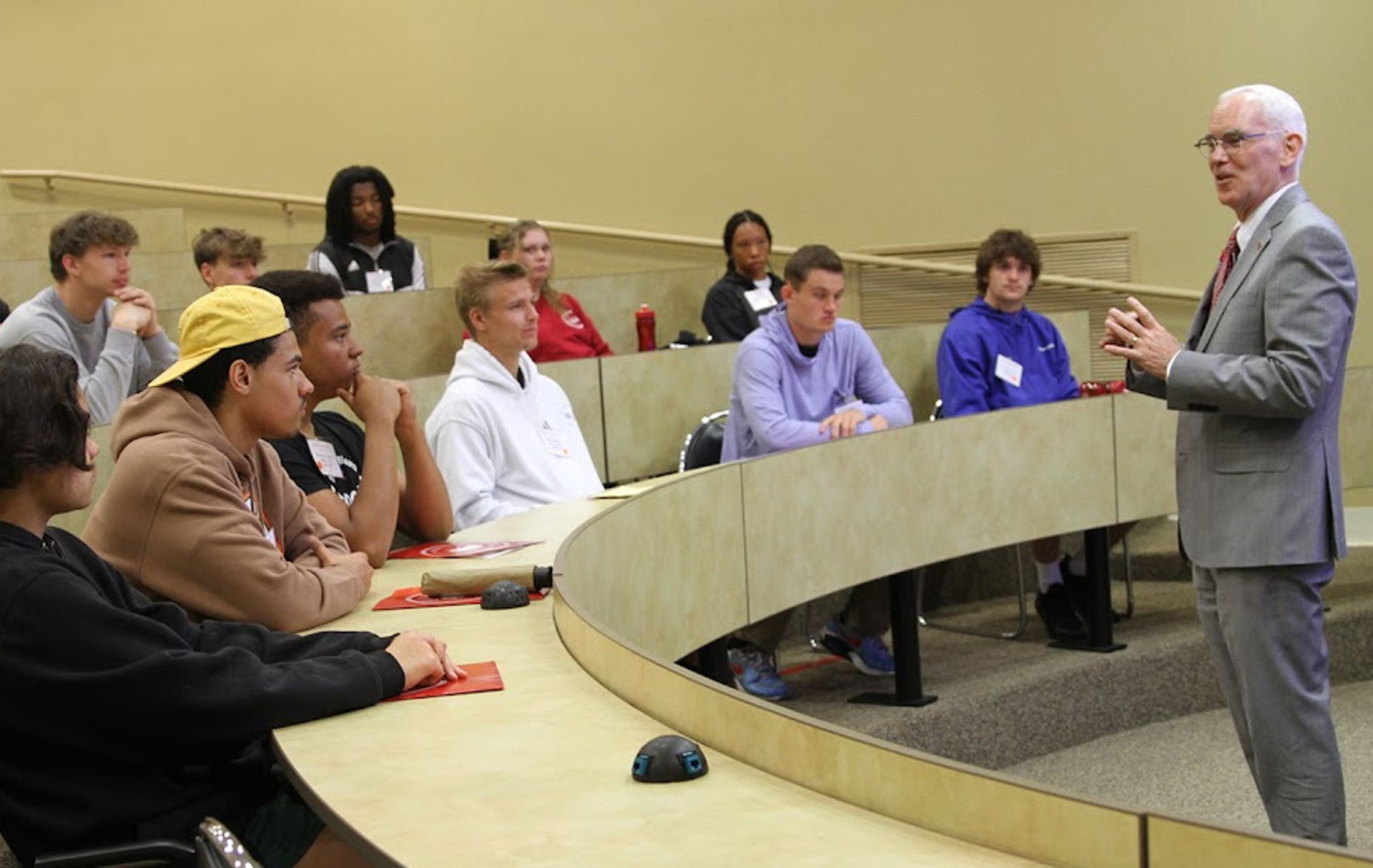
The minors in Entrepreneurship, Health and Humanities, and Public Health give students more opportunities to pursue their passions outside their majors.
Guilford College is rolling out three new minors this fall that students can add to any major. The new minors – Entrepreneurship, Public Health and Health Humanities – will provide more opportunities for students to pursue interests and passions in meaningful ways at the College.
“We’re excited about our expanded classes and minors,” says Provost Maria Rosales. “Guilford has been a place that encourages students to pursue their passions in ways that benefit themselves and the world, and that’s even more true today.”
Maria says that, in addition to helping students explore their interests, the new minors will help prepare students for future careers or graduate studies. Here’s a look at the new minors:
Entrepreneurship
The Entrepreneurship minor is designed for students majoring in another discipline but who have an interest in the process of entrepreneurship. Ashley Raper, Special Assistant to the President and parent of a current Guilford student, taught a three-week pilot entrepreneurism class in the spring. She says the minor will teach students to think like a startup founder and creative innovator.
“Students who leave Guilford with an Entrepreneurship minor will leave with a deep background of entrepreneurial knowledge,” she says. “We want them to have an entrepreneurial mindset and tools that they can deploy at any point in their careers. Maybe that’s joining a startup or even starting their own company. Maybe it’s about investing in new ventures or pushing for social change. This (minor) is going to give them the tools they need.”
Health Humanities
The Health Humanities minor, years in the making, is interdisciplinary and will draw on arts, humanities and social sciences in its approach to health, healthcare and well-being.
H. Curt '56 and Patricia S. Hege '57 Professor of History Tim Kircher, who helped design the curriculum, said the minor will allow students to examine and understand health and healthcare from a big picture perspective that encompasses more than clinical diagnosis and treatment.
He says the Health Humanities minor will appeal to students from all walks of academic life – from athletes who want to enhance their athletic performance to students looking for occupational therapy and physician’s assistant programs after graduation. “It’s something that medical schools have integrated into their curriculum and it’s only going to grow,” he says.
Tim says courses for the minor are still being discussed. He expects a wide range of disciplines to be involved. “We’ve got proposals coming in from Music, History, English, Religion, Ethics and modern language and that’s just on the humanities side,” he says.
“Of course we’ll be folding in Economics, Biology and Psychology too. I think the students will see a connection no matter what they choose to major in and how their courses in that major can bring them closer to the minor.”
Public Health
The Public Health minor reflects the College’s Quaker commitment toward working for social and environmental justice for all. It will combine courses in the sciences, medical and health fields, technology, business and public policy.
Aleks Babić '07, Assistant Professor of Public Health, says the minor is a natural response to the Public Health major Guilford created in 2018. Many students interested in Public Health as part of a double major couldn’t work the course load into already demanding schedules.
Aleks and Michele Malotky, Professor of Biology, created the minor to help those students interested in pursuing a medical career after Guilford. Aleks says public health training has become more prevalent among medical professionals, and that many doctors and nurses are retroactively seeking public health education, while they are already working in the medical field.
Students with a Public Health minor will possess a broad understanding of the many factors that influence public health, such as clean air, clean water, access to healthcare, education and disease prevention.

